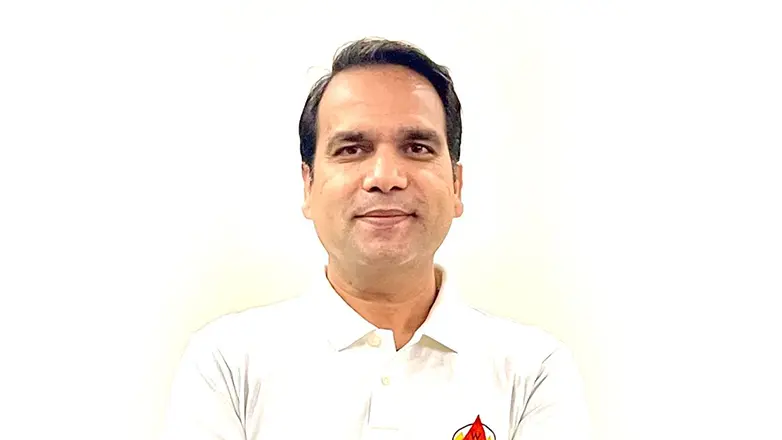In the ever-changing world of startups and tech entrepreneurship, some stories stand out for their sheer scale and complexity. One such narrative is that of Vinay Hiremath, the co-founder of Loom, a video messaging platform that has made waves in the digital communication space. After recently selling his startup for a staggering $975 million, Hiremath finds himself at a crossroads, asking a very human question: “What now?”
The Loom Journey: From Humble Beginnings to a $975 Million Exit
Founded in 2015 by Vinay Hiremath, Shahed Khan, and Joe Thomas, Loom quickly gained traction as a go-to video messaging platform. The app enabled users to record and share video messages, offering a more personal alternative to traditional emails and texts. Its primary focus was to help professionals communicate more effectively in the modern workplace, whether in tech, remote teams, or customer service.
Loom’s unique selling proposition was its simplicity, intuitive interface, and ability to make communication more human by providing an emotional layer often missing in text-based interactions. The company’s rapid growth was fueled by the increasing demand for tools that supported remote work, a trend that only intensified during the COVID-19 pandemic.
In just under a decade, Loom’s impact was undeniable. It became a staple for remote teams and educators, and the platform attracted millions of users worldwide. By the time the company sold, Loom was valued at $975 million, cementing its place in the history of successful tech startups. However, for Hiremath, this success has raised an unexpected existential question.
Vinay Hiremath’s Reflections on Life After the Sale
Vinay Hiremath’s words, “I am rich and I have no idea what to do,” offer an interesting glimpse into the inner workings of a successful entrepreneur. It’s not just a statement of financial success, but also a reflection of the psychological and emotional challenges that come with achieving great wealth at a young age.
After years of hustle, long hours, and the intense pressures of building a startup from scratch, Hiremath’s reflection is understandable. When your company is sold for nearly $1 billion, many expect you to feel on top of the world—elated, free, and ready to take on the next big thing. However, for Hiremath, this moment seems to have brought with it a sense of uncertainty.
In interviews following the sale, Hiremath has admitted to being unsure about his next steps. The typical path for successful entrepreneurs is to either start a new company, invest in other startups, or take on advisory roles. However, for Hiremath, it seems that the future is less clear.
“I didn’t plan to get rich,” he has shared in candid conversations. “It happened, and now I find myself questioning what comes next. It’s a strange feeling, one that’s hard to explain.”
What’s Next for Vinay Hiremath?
As Hiremath navigates the post-exit phase of his life, there are many possibilities on the horizon. While some may expect him to dive into a new venture or philanthropic endeavor, he has made it clear that he is taking time to explore what truly excites him.
For now, he’s embracing a period of rest and self-reflection. The intense focus on growing Loom for nearly a decade has left little room for personal time. Hiremath has mentioned that he’s now prioritizing his mental well-being, family, and learning about areas of life that were once neglected in favor of business growth.
“I want to figure out who I am outside of Loom,” he said in one interview. “This chapter of my life was all about building something. Now, I want to take time to learn, to travel, and to simply enjoy life.”
The Reality of Wealth and Success
While Vinay Hiremath’s story is one of monumental success, it also sheds light on a lesser-discussed aspect of entrepreneurship: the emotional and psychological toll that can come with sudden wealth. The dream of a financial windfall often comes with a hidden cost. Many entrepreneurs and high-net-worth individuals find themselves questioning their identity and purpose after they achieve their financial goals.
According to experts, it’s not uncommon for those who experience rapid success to feel a sense of emptiness or disillusionment. When you’ve spent so many years building a company with an all-consuming focus, the moment it’s sold can trigger a sense of loss. The identity that was once tied to the startup and its mission is suddenly gone, and that can lead to feelings of confusion and uncertainty.
What Can We Learn From Vinay Hiremath’s Journey?
- The Importance of Mental Health in Entrepreneurship
Vinay Hiremath’s journey highlights a crucial aspect of entrepreneurship: the importance of mental health and self-care. Success in business is often coupled with intense stress, long hours, and immense pressure. Entrepreneurs like Hiremath may experience burnout or existential questions once they reach their financial goals. It’s a reminder that mental well-being should be prioritized just as much as financial success. - The Question of What to Do Next
The question of “What now?” is a common one for entrepreneurs who have sold their businesses. The pressure to make the “next big move” can feel overwhelming. However, Hiremath’s story illustrates that taking time to reflect, recharge, and explore personal interests is a valid and necessary part of the entrepreneurial journey. Success isn’t always about making another deal—it’s about finding fulfillment in the next chapter. - The Unseen Emotional Impact of Wealth
The emotional toll of sudden wealth is often overlooked. Entrepreneurs like Hiremath may experience a mix of joy, relief, and confusion after their company is sold. While financial freedom can open doors to new opportunities, it can also present unexpected challenges in terms of identity and purpose.
The Future of Loom and its Legacy
While Vinay Hiremath may be contemplating his next steps, Loom continues to thrive. The platform, now a critical tool for remote communication, is expected to grow even further under new leadership and ownership. Loom’s legacy as a pioneer in video messaging remains intact, and its impact on the tech industry is undeniable.
In many ways, the success of Loom is just as much about its founders as it is about the thousands of users who continue to rely on the platform every day. Vinay Hiremath, through Loom, has changed the way people work, communicate, and collaborate. Whether or not he returns to the startup scene, his influence on the tech world is sure to last.
To sum up..
Vinay Hiremath’s story is a powerful reminder that success in the tech world doesn’t always come with clear answers. After selling Loom for $975 million, Hiremath finds himself at a crossroads, asking the fundamental question of what comes next. For entrepreneurs, this moment of self-reflection is just as important as the moments of success that preceded it.
As the world continues to change and the future remains uncertain, one thing is clear: Vinay Hiremath has left a significant mark on the world of tech, and whatever path he chooses next will likely be just as impactful. For now, though, he’s embracing the unknown and taking the time to explore life beyond the world of startups.
Key Takeaways:
- Loom’s Success: Loom’s co-founder Vinay Hiremath helped build the company into a major player in the video messaging space, achieving a sale for nearly $1 billion.
- Post-Exit Uncertainty: Despite his financial success, Hiremath is grappling with existential questions about his future after the sale.
- Mental Health and Entrepreneurship: The psychological challenges of sudden wealth and the importance of mental well-being are key themes in Hiremath’s journey.
- What’s Next for Hiremath?: For now, Hiremath is taking time to reflect on life outside of his startup, focusing on personal growth and enjoyment.






















